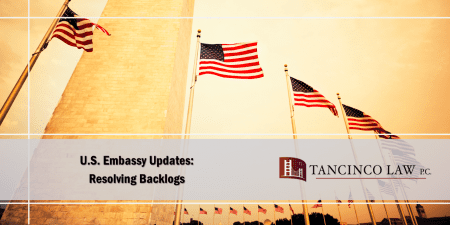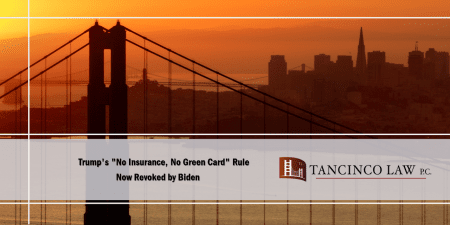If the National Visa Center (NVC) determines you have paid the necessary fees, submitted the required immigrant visa application, Affidavit of Support, and supporting documents to NVC, you will receive an email that your case is documentarily complete and NVC will work with the appropriate U.S. Embassy or Consulate to schedule an appointment for you. NVC cannot predict when your case will be scheduled for an interview.
The U.S. Embassy or Consulate General tells NVC what dates they are holding interviews, and NVC fills these appointments in a first-in, first-out manner. Please keep in mind, applicants in a numerically limited (preference) visa category can receive an appointment, their priority date must also be current.
Since March 2020, the COVID-19 pandemic has dramatically affected the Department of State’s (DOS) ability to process immigrant visa applications. U.S. embassies and consulates are working to resume routine visa services on a location-by-location basis as expeditiously as possible in a safe manner. Visa applicants waiting to be interviewed on their applications have been waiting longer despite the fact that they have been documentarily qualified. The reason for the delay of 1 -2 years before an interview is scheduled is the number of visa applicants that have been pending.
For the month of February 2022, the NVC released the following figures to indicate the number of cases that are pending worldwide:
| Number of IV applicants whose cases are documentarily complete at NVC and ready for interview as of January 31 |
464,120 |
| Number of documentarily complete IV applicants scheduled for February 2022 interview appointments |
27,454 |
| Number of eligible IV applicants still pending the scheduling of an interview after February 2022 appointment scheduling was completed |
436,666 |
Note: In Calendar Year 2019 on average, 60,866 applicants were pending the scheduling of an interview each month.
A documentarily complete visa applicant will receive an update from the NVC every 60 days to make sure that the visa applicant is on the queue for a visa interview.
In a recent meeting of the American Immigration Lawyers Association with the DOS, one of the measures being taken to resolve the backlog is for the government to hire more consular officers. According to the State Department, Consular Affairs is working with the State’s office of Global Talent Management to ramp up hiring in FY 2022, but many posts will not see these new officers until the second half of FY 2022 or FY 2023, particularly for officers assigned to positions requiring language training. Hopefully, increased in consular officers will eventually reduce the backlog and interview dates for documentarily qualified visa applicants will be scheduled sooner.



